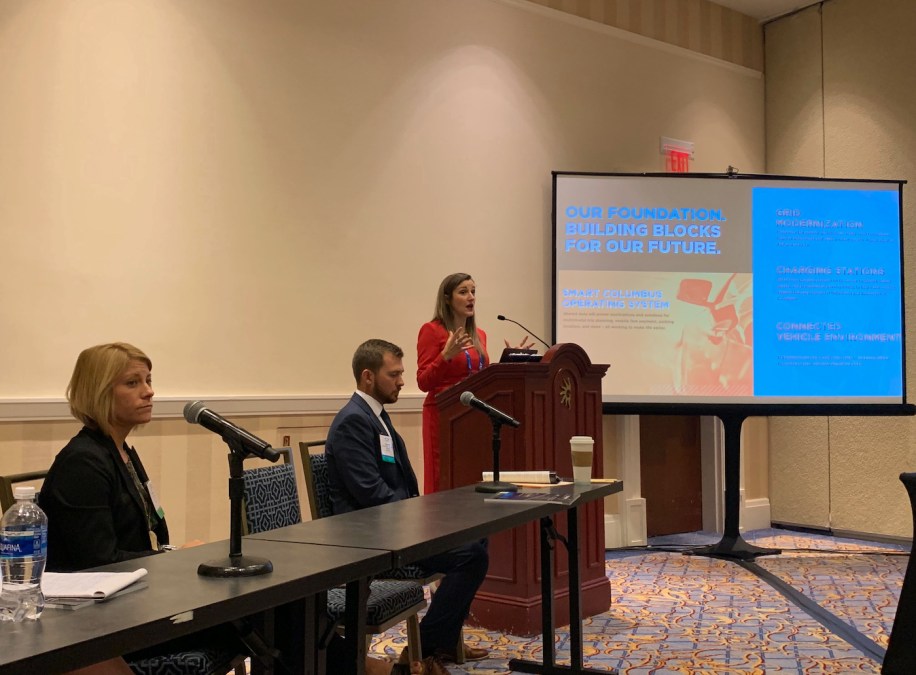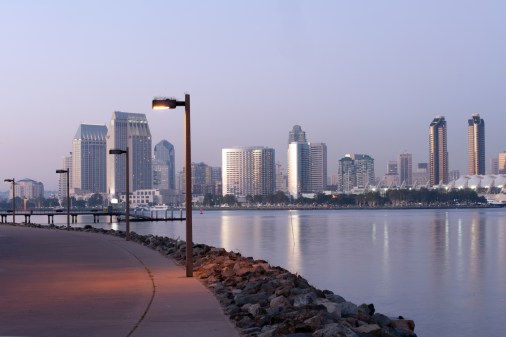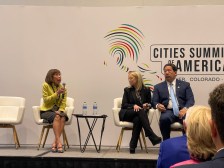Engaging community is key for smart-city development, officials say

Local officials who install “smart” technologies and develop policy initiatives without first assessing the actual needs and concerns of their residents miss the point of building internet-connected cities, several government and non-profit technology officials said Tuesday.
Speaking at the Smart Cities Connect Expo in National Harbor, Maryland, Jordan Davis, the director of Smart Columbus, the nonprofit agency that promotes Columbus, Ohio‘s “smart city” program, said that early community outreach is critical to develop trust between government and the denizens unfamiliar with new technologies being deployed in their neighborhoods. Without that engagement, residents could assume that officials are covering up details of what the tech does, or not believe that they benefit from their adoption.
One example, said Kenya Asli, a smart-cities strategist for the city of Baltimore, is ShotSpotter, a popular brand of acoustic sensor that detects gunshots and reports them to police. At first, though, Asli said Baltimore residents feared the devices picked up more than just gunfire.
“When ShotSpotter was installed, we got calls from city residents asking, ‘What is this thing in my neighborhood, I hear it can hear gunshots. Can it also hear my conversation?’” Asli said. “So we don’t do the best job at preparing our residents for that.”
ShotSpotter devices, which are typically mounted on utility poles and building roofs, aren’t designed to listen to people’s conversations. But the problem of government officials ignoring residential requests for information about emerging technologies, like facial recognition or environmental sensors, is one that city officials are trying hard to avoid as they collect more and more data on their infrastructure and residents. Melissa McMahon, the transportation research and development manager for Arlington County, Virginia, said that her team has found success by holding community outreach events before they start dissecting any new data.
“It’s best to know big-picture what your community cares about so you can hone in on what the data can tell you,” McMahon said.
Because every city and county is different, though, there isn’t a magic bullet to learn exactly what residents care about, Davis, the Columbus smart-city manager said. In her city, Davis has overseen the launch of a community “Experience Center” that showcases the city’s new mobility technologies, especially electric cars. If residents want to learn, they can; if they have opinions and don’t like Smart Columbus, Davis said she wants to hear that too.
New Orleans Deputy CIO Whitney Soenksen said she tends to avoid the “smart city” moniker when speaking to residents. To inform them about the city’s technology efforts, including creating equitable access to both the internet and internet-connected devices, she holds events like quarterly device-repair clinics where residents can engage with city IT staff.
“Folks in the community know those people,” Soenksen said, “and have come to be able to say, ‘Hey we don’t know what’s going on here, can you tell us?’”
The speakers on Tuesday agreed building those relationships takes time and effort, though.
“It’s not like you can go into one neighborhood, give an update and be like ‘OK, we did it,'” Davis said. “It’s becoming a familiar face, a trusted source and you need dedicated people on your team responsible for thinking about that.”
In Baltimore, Asli, who as an office of one is often responsible for meeting residents herself, said it’s not always fun, but it is important.
“You have to be able to open the door, ask the question, sit still and take the verbal lashing you just might get. That’s a different form of smart city resilience,” Asli said.






